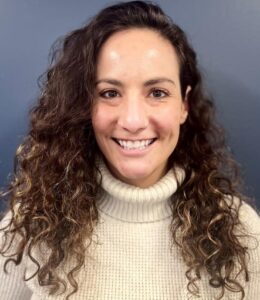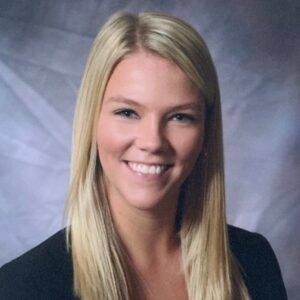While social media platforms like TikTok, Snapchat, Instagram, Facebook, have their unique features and trends, they all are designed to keep you engaged with content that focuses primarily on lifestyle and often unrealistic and potentially harmful aspirations. Our brains are wired to compare, which is especially concerning for adolescents who don’t yet have the emotional intelligence to recognize how harmful this kind of content can be on their mental health and body image. This is why it’s critical to understand the dangers of social media trends and create better guardrails to shape your feed.
Harmful diet trends disguised as healthy
There are countless trends on these platforms that can be dangerous for young people. One trend that you may have seen on your For You page are the “What I eat in a day” videos. These consist of a creator detailing all the meals and snacks that they ate during a given day, like a play by play. They often include estimated calorie counts and serving sizes which can be problematic for a slew of reasons.
Regardless of the type of eating pattern someone is promoting, these videos further support the idea that there is a right or a wrong way to eat. Even if the creator is in eating disorder recovery, it doesn’t mean that what they eat is right for everyone in recovery. There is no magic pill, or one size fits all solution for disordered eating. Recovery looks different for everybody, and it is important that we don’t define recovery by the way that someone else eats. These videos often depict diet rigidity, while promoting it as health and recovery.
Another social media trend that often complements eating journal videos is “body checking,” which is characterized by repeatedly checking different aspects of one’s body or weight throughout the day. These harmful videos can lead to hyper fixation on one’s body and comparison to the content creator’s body, resulting in negative feelings about one’s body image both of which can encourage disordered eating behaviors.
A dangerous, spiraling feed of food & body-related content
Eating disorders can be sneaky, and when our social media feed has an abundance of food and body related content, it can dangerously reignite food-related struggles. Content creators generally do not account for the fact that nutrition is individualized, and people have different needs both for their bodies and mental well-being. It takes a combination of lived experience, understanding how we feel in our own bodies, and finding support from eating disorder specialized therapists and dietitians to figure out the right eating pattern for each person.
It’s not as simple as tips and tricks from a TikTok.
Shape your social content – filter out weight loss ads and more
You are in charge of your social media feeds, and there are ways you can put guardrails to limit the type of content that might be harmful. For example, Instagram allows individuals to manage and filter their feeds including filtering out weight loss ads. In addition, Instagram and TikTok attempt to police their content by blocking certain search results. For example, if you search “body checking,” the National Eating Disorder Association contact information comes up instead.
Your social media experience can be shaped however you want whether by unfollowing, blocking, or reporting unwanted content and accounts, as well as following more helpful and inspirational accounts. Some of our favorites are @ed.recovery.quotes, @thewellful, and @your.latina.nutritionist on Instagram. It is also important to consume information from reliable and credible sources such as from registered and/or licensed practitioners. When it comes to nutritional information, look for a person who is a registered dietitian who uses an evidence-based practice approach and specialized in your area of interest. The more we are collectively aware about the impact of these trends, the more we prevent the spread of misinformation.
How can parents help?
Parents can play an important role in the content that their kids consume online. It may be unrealistic to expect a child to know how to filter out their own social medias or even why they should. There are several signs to look out for when monitoring the accounts your child follows including posts that are focused on numbers, calories, or macros, and content that is based on “this or that,” or “right or wrong” when it comes to food choices. Ideally, we live in a world where people want to eat freely, and our children are not faced with the powerful diet culture daily.
It’s also important to draw the unique distinction that scrolling on social media is an isolated activity and we aren’t always aware of the seeds that the content is planting. Unlike watching a show or a movie with somebody where there is a distinct ending and you can have a conversation about it afterwards, the endless scroll of social media creates a vacuum that can be lonely and lead to dangerous thoughts and behaviors.
Reflecting on your social scrolls
It can be helpful to ask yourself some reflection questions after spending time on social media.
- How does my mental health feel right now?
- What about my mood?
- Do I feel more self-critical, or like I have to change my body? If yes, was it really worth it to consume that content?
Based on your answers, it may be time to audit your social media habits and the content you’re consuming. Your mental health will thank you.
We’re here to help
We know finding care can be tough. That’s why Walden is here for you. If you are concerned that you, or a loved one, may have an eating disorder, please reach out by completing the form on this page or email us at intake_coordinators@waldenbehavioralcare.com.
Anniina Haka (she/her/hers) graduated from Boston University with a bachelor’s in dietetics and nutrition sciences. As part of her graduate studies at Boston University to earn her Master of Science in nutrition, she completed her dietetic internship at Walden’s Center for Recovery. Anniina intends to become a registered dietitian and aims to work in eating disorder treatment and prevention. She also has a passion for working with athletes. Nutrition is an integral part of sports performance for athletes, and therefore, she hopes to one day work in sports nutrition to help athletes optimize their athletic endeavors.
 Courtney Gilliam, MS, RDN, LDN, CEDS (she/her/hers) is the Director of Clinical Nutrition Services at Walden Behavioral Care. Courtney has over twelve years of experience in the treatment of patients with eating disorders. Her experience includes working with collegiate athletic departments, developing and instructing undergraduate nutrition courses in an adjunct faculty role, and providing direct patient care in the outpatient, intensive outpatient program (IOP), partial hospitalization program (PHP), residential and inpatient levels of care. In her current role, Courtney directs and manages all aspects of clinical nutrition within the Inpatient and Residential Eating Disorder Units. She oversees collaborations that interface with nutrition-related services in the setting of the multidisciplinary eating disorder care team and provides supervision to the Food Service Manager, the Coordinator of Culinary and Horticultural Education, Lead Registered Dietitians, Registered Dietitian Nutritionists (RD/RDNs), Nutrition and Dietetic Technicians (NDTRs), and Diet Aides.
Courtney Gilliam, MS, RDN, LDN, CEDS (she/her/hers) is the Director of Clinical Nutrition Services at Walden Behavioral Care. Courtney has over twelve years of experience in the treatment of patients with eating disorders. Her experience includes working with collegiate athletic departments, developing and instructing undergraduate nutrition courses in an adjunct faculty role, and providing direct patient care in the outpatient, intensive outpatient program (IOP), partial hospitalization program (PHP), residential and inpatient levels of care. In her current role, Courtney directs and manages all aspects of clinical nutrition within the Inpatient and Residential Eating Disorder Units. She oversees collaborations that interface with nutrition-related services in the setting of the multidisciplinary eating disorder care team and provides supervision to the Food Service Manager, the Coordinator of Culinary and Horticultural Education, Lead Registered Dietitians, Registered Dietitian Nutritionists (RD/RDNs), Nutrition and Dietetic Technicians (NDTRs), and Diet Aides.



